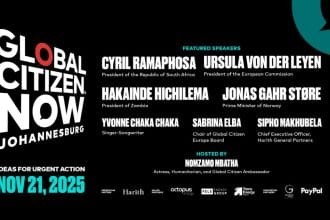The Johannesburg Metro Police Department (JMPD) has recently addressed widespread misconceptions regarding traffic fines and roadblocks. A notable misunderstanding is that motorists are obligated to pay fines on the spot when stopped at roadblocks, but JMPD spokesperson Xolani Fihla has emphasized that this is simply not true.
No Obligation to Pay at the Roadblock
“Despite the mini caravan parked beside the road, you do not have to pay your traffic fines at a roadblock.” This is a critical point that motorists need to understand. While officers may provide drivers with a list of their outstanding fines, they are not required to pay immediately. Fihla explains, “We use the AARTO system, so you are not forced to pay traffic fines immediately at the roadblock, and you won’t be arrested for any outstanding traffic fines.”
This clarification aims to alleviate the confusion and stress many drivers face when pulled over, often under the impression that they must settle their fines on the spot or face legal consequences.
Check Your Fines Regularly
Wayne Duvenage, CEO of the Organisation Undoing Tax Abuse (OUTA), also weighed in, advising motorists to be proactive about managing their traffic fines. He recommends regularly checking for fines and verifying the dates on which they were issued. “You have to be notified of a fine within 30 days. If that is not the case, you don’t have to pay those fines… [and] if it is not your car and you were not there, you must object to the fines,” Duvenage says.
This advice serves as a safeguard for motorists, ensuring that they are not penalized for violations they were unaware of or for fines that were improperly processed.
‘Luxury Roadblocks’ Controversy
In recent months, JMPD has faced criticism for what some residents have termed ‘luxury roadblocks,’ which allegedly target luxury vehicles in affluent areas. Areas like Sandton Drive and Winnie Mandela Drive have been cited as locations where roadblocks seem to be concentrated.
Fihla, however, denies any deliberate targeting of luxury cars. He notes that officers use their discretion when deciding which vehicles to stop. “It’s not necessarily that there is a target that you need to stop luxury vehicles,” he explains. The department maintains that roadblocks are conducted across various regions, and the selection of cars is not based solely on the appearance of wealth or luxury.
Reporting Misconduct
While the JMPD has clarified their policies, they also stress the importance of reporting any foul play during traffic stops. Bribery and corruption remain significant concerns, and the JMPD has zero tolerance for such misconduct. “We don’t tolerate [bribes] at all. That’s why it is advised that if officers attempt to do that or they do that, it is important that you report it as soon as possible,” Fihla asserts.
Motorists who suspect foul play are urged to report incidents to the JMPD Anti-Corruption hotline at 080 020 3712, or to the City of Johannesburg’s emergency line at 011 375 5911. The anti-corruption number is also listed on the side of every JMPD vehicle to make reporting easier.
Conclusion
The JMPD’s message is clear: you are not obligated to pay fines at roadblocks, and any pressure to do so should be met with caution. Drivers are encouraged to regularly check their fines and report any suspicious behaviour by law enforcement. With this knowledge, motorists can confidently navigate roadblocks without fear of undue fines or unlawful treatment.
Related article: JMPD Arrests 7 People for Driving Over The Speed Limit













